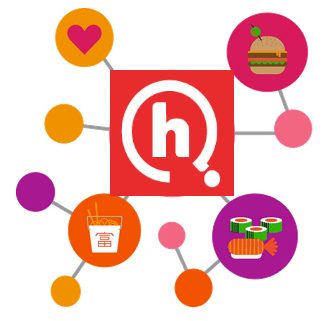SingTel has licensed Nara Logics‘ restaurant recommendation engine in a bid to give its Digital Life assets a shot in the arm. The deal will see SingTel license Nara’s “Pandora for restaurants” algorithm, which is aimed at creating personalized lists of eating places for users.
The value of the deal was undisclosed, but Nara Logics CEO Thomas Copeman said it will span several years, and that the revenue from it is “financially significant” to Nara.
SingTel is Singapore’s largest telecoms provider, and one of the largest in Asia, with 434 million mobile customers in 25 countries in the region. Nara currently lists about 500,000 restaurants across the U.S. and Canada, and this deal with SingTel marks the first time the Cambridge, Mass., startup is working outside North America and with a telco. Founded in 2010, Nara came out of stealth mode in 2012, raising $4 million in June, and another $3 million at the end of that year.
SingTel will use Nara’s technology for its Digital Life portals, in particular its crowdsourced restaurant review sites, Hungrygowhere and Eatability. Last year, SingTel acquired Singapore’s Hungrygowhere for $9.4 million and Australia’s Eatability for $6.2 million. It remains to be seen whether the inclusion of Nara will it make a difference for SingTel.
Since the telco bought Hungrygowhere, it hasn’t really done much with it other than mash some of the food-related editorial content from its news portal, inSing.com, onto Hungrygowhere. (It’s also slapped a whole bunch of ads on the site in recent months.) The site currently has a fairly rudimentary search engine, and throws up search findings by keyword or tagged category.
Copeman said the new search will allow SingTel users to input personal preferences, tastes and interests. The aim is to shorten search time and find results more relevant to users, he said.
SingTel’s head of Digital Life’s local operations, Loo Cheng Chuan, said the aim for Digital Life is to be in the “hyperlocal” space, in particular serving food, lifestyle and e-commerce content.
The Digital Life arm was formed just last year, when SingTel performed a major restructuring of its business, in a bid to be lifted above the ranks of a “dumb pipe.” Digital Life is intended to compete with over-the-top competition, and provides digital content such as TV and magazines to SingTel subscribers.
The telco also recently launched a restaurant booking site called TableDB, similar to OpenTable.
As SingTel gets its hands deeper in the business of providing content, it faces some strong competition from existing local players. In Singapore, for example, Chope.com.sg and Reserveit.sg also provide table reservations, and in the “lifestyle discovery” portion, Yelp made Singapore its first destination in Asia last November.
Still, SingTel has deep pockets and will be able to compete, at least based on aggressive acquisitions. In order to collect more content assets, the telco went on a buying spree in 2012, acquiring Hungrygowhere and Eatability, as well as photo aggregator Pixable for $26.5 million. Mobile ad platform Amobee was a big-ticket purchase of $321 million in March 2012 to augment its own mobile advertising business. And last month, SingTel announced that it has set aside $1.6 billion between 2013 and 2015 to continue shopping.
Outside of acquisitions, last year it launched a news reader called Newsloop, and a meet-up app called Loop & Meet.
